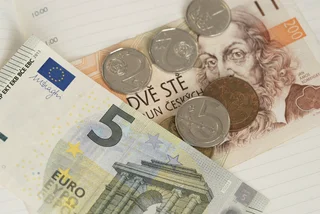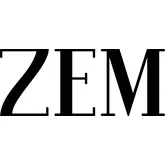The economic crisis facing the Czech Republic shows no signs of abating. The latest data published by the Czech Statistical Office for April 2022 showed year-on-year inflation of 14.2 percent. As well as spiking energy costs, significant price increases were also recorded for construction materials, fuels and oils, and food and drink products.
As people living in the Czech Republic start to feel the pinch of higher prices at the grocery store and the gas station, many are asking whether Czech membership of the eurozone would have helped the country weather the economic storm more effectively. Inflation levels in Czechia are much higher than the eurozone average of 8.1 percent announced at the end of May.
So would the Czech Republic be faring better if it had already replaced the Czech crown with the euro? Expats.cz asked the experts what the implications of eurozone membership would have been for the country.
Would inflation be lower?
The most pressing question, when it comes to Czech economic health, is whether the current inflation spike would have been less extreme, or even averted altogether, had the country been in the eurozone.
Lukáš Kovanda, Chief Economist at Trinity Bank, told Expats.cz that inflation would not have been avoided if the Czech Republic were a eurozone member.
“We wouldn’t be any better off. Just look at the Baltic countries, where inflation is now even higher than the Czech Republic. On the other hand, look at Switzerland, a non-eurozone country, which has lower inflation than Germany. Currency is not the driving force,” he said.
Instead, economists argue that high Czech inflation is the result of a specific set of domestic circumstances coupled with global uncertainty caused first by the pandemic, and now by war in Ukraine.
“Part of the total inflation is down to specifically Czech factors, such as the extreme tightness of the labor market and the profligacy of the previous government,” said Michal Skořepa, an economic analyst at Česká spořitelna.
Kovanda offers a similar analysis.
“The labor market is overcrowded; we have the lowest unemployment rate in the EU, and it’s even lower than classic textbook cases of low unemployment such as Japan,” he said.
“We also have a sluggish and problematic real estate market. The supply of housing is not enough to meet demand, and the resultant price increase is another serious inflationary pressure.”
Would investors feel more confident?
Economists also think the Czech Republic’s independence of the eurozone may be a bonus in retaining foreign investor confidence. Amid war in Ukraine, some have raised concerns that international companies might shy away from investments in Central and Eastern Europe in the future.
“The most important factor for investor confidence is domestic monetary, fiscal, and regulatory policy, as well as the stability and transparency of the political and legal environment,” said Skořepa. “The Czech Republic could gain points as an investment-friendly economy by resisting calls for price caps and other popular but market-distorting measures.”
Even with the Czech Republic’s ability to dictate its own economic policy, though, some element of risk is unavoidable given the regional turmoil.
“If there is a prolonged war, or if Russian forces enter other countries, there could be a risk of decreasing international investment into the Czech Republic. Still, at the moment I do not see this as a major concern,” said Kovanda.
Does Czechia's economic independence help?
The Czech National Bank has taken some controversial steps in fighting inflation, rapidly increasing base interest rates from less than 1 percent in September 2021 to 5.75 percent today, the highest level seen since the 1990s.
Is the ČNB’s ability to set independent monetary policy a help or a hindrance in the current circumstances? This depends on the wisdom of the measures adopted by the central bank, and both Kovanda and Skořepa think the ČNB’s actions have demonstrated the positives of having an independent currency.
“It’s a big bonus for us to have an independent monetary policy,” said Kovanda. “Just look at the Baltic states and Germany. I’m sure these countries would be happier if the eurozone had higher interest rates, but it’s not possible because southern EU states might not survive the imposition of higher rates. Without our independent control and the introduction of higher interest rates, Czech inflation could have been another 10 percent higher by now.”
Is a recession coming?
Even with the ability to set its own monetary policy, could the Czech Republic be heading for a recession?
A recession is a period of extended economic decline, usually declared when gross domestic product (GDP) decreases, unemployment rises, and retail sales fall together with other measures of income.
“There’s a 60 percent chance of recession right now,” said Kovanda. “We’re very vulnerable compared to other countries regarding the Ukraine war due to our geographical proximity to that country. There’s no certainty; but there is a likelihood that a recession will happen.”
Together with the rest of Europe, tough times lie ahead for the Czech economy. The future is still uncertain, but one thing’s clear: the Czech Republic’s ability to control its own destiny, thanks to the continued use of the Czech crown, has been a major bonus in recent months.












 Reading time: 4 minutes
Reading time: 4 minutes 





























